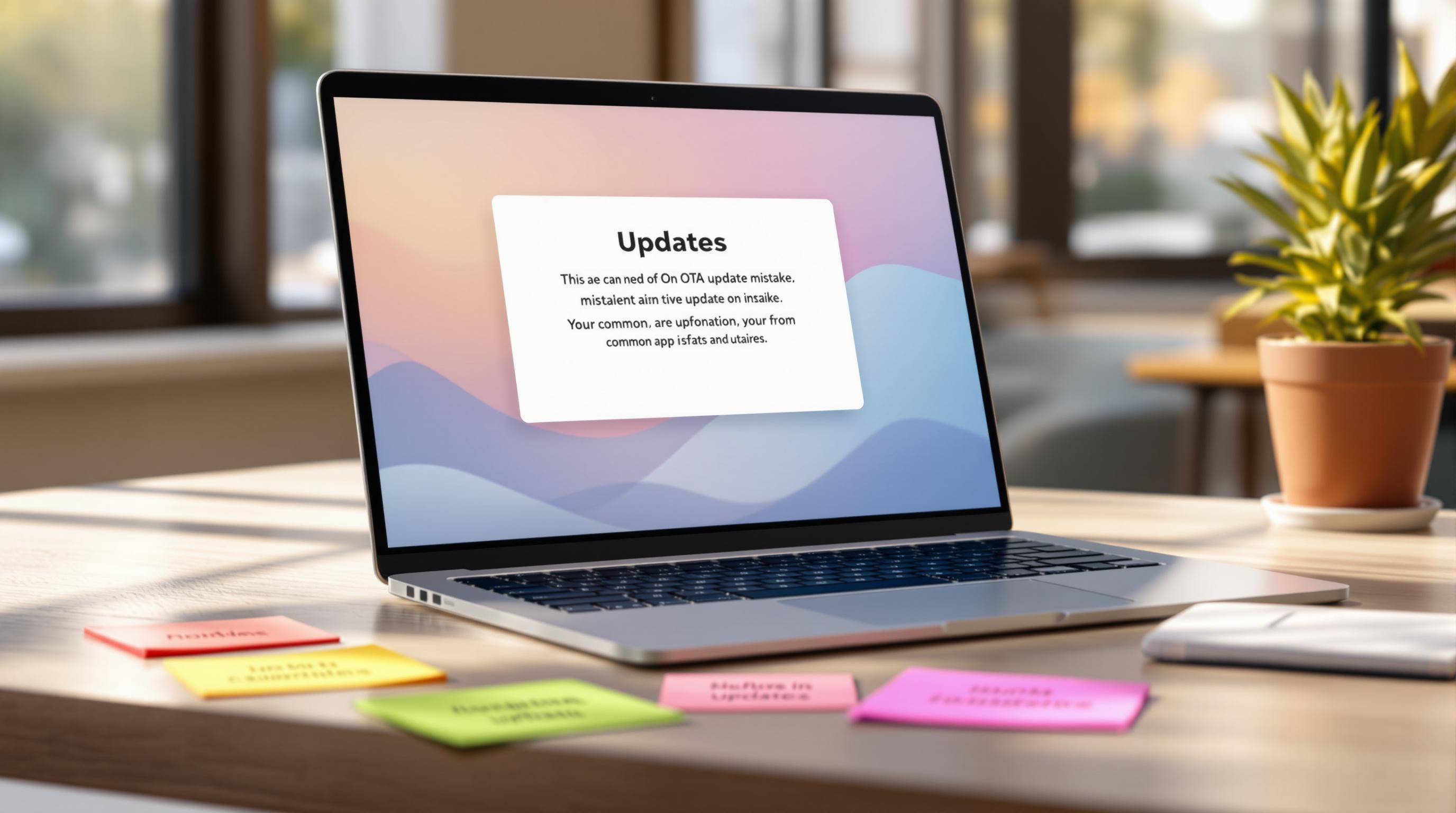Understanding Live Updates in Capgo
Live updates are one of the most powerful features in Capacitor apps, allowing real-time updates without app store submissions. Let’s dive deep into how Capgo implements this functionality.
Core Concepts
A Capacitor app consists of two main layers:
- Web Layer: Contains HTML, CSS, and JavaScript files loaded in the WebView
- Native Layer: Contains platform-specific code (Java/Kotlin for Android, Swift for iOS)
Capgo’s live update system works by replacing the web layer at runtime, as these files aren’t compiled into the app binary.
Technical Implementation
Server Paths in Capacitor
Capgo manages two critical paths:
- Current Server Path: Points to files currently loaded in WebView
- Next Server Path: Points to files that will load on next app restart
Android Implementation
On Android, Capgo manages paths through:
// Store next server pathprivate void setNextCapacitorServerPath(String path) { SharedPreferences prefs = context.getSharedPreferences("CapWebViewSettings", Activity.MODE_PRIVATE); SharedPreferences.Editor editor = prefs.edit(); editor.putString("serverBasePath", path); editor.apply();}
// Update current path and reloadprivate void setCurrentCapacitorServerPath(String path) { bridge.setServerBasePath(path); bridge.reload();}iOS Implementation
On iOS, paths are managed through:
// Store next server pathprivate func setNextCapacitorServerPath(path: String) { KeyValueStore.standard["serverBasePath"] = path}
// Update current pathprivate func setCurrentCapacitorServerPath(path: String) { bridge.viewController.setServerBasePath(path: path)}Security Measures
Capgo implements military-grade security through end-to-end encryption, ensuring your app updates remain completely secure from development to deployment. Our encryption system goes beyond traditional code signing to provide true zero-knowledge security.
End-to-End Encryption Architecture
-
End-to-End Encryption (E2EE): Every update bundle is encrypted using AES-256-GCM encryption before leaving your development environment. This military-grade encryption ensures that your app updates remain completely private and secure throughout the entire delivery process.
-
Zero-Knowledge Architecture: Unlike other OTA update solutions that only sign updates, Capgo employs true zero-knowledge encryption. This means:
- Update contents are encrypted before upload
- Capgo servers only store encrypted data
- Decryption only happens on end-user devices
- No intermediary can access your update content
-
Secure Key Management:
- Encryption keys are generated and stored securely in your CI/CD environment
- Private keys never touch Capgo’s servers
- Each app version can use unique encryption keys
- Key rotation support for enhanced security
Learn more about our encryption system in our detailed guide: End-to-End Encryption in Capgo Live Updates
Update Security Process
-
Pre-Upload Encryption:
- Updates are encrypted in your CI/CD pipeline
- Each file is individually encrypted
- Metadata is also encrypted for complete privacy
-
Secure Storage:
- Encrypted bundles are stored on Capgo’s global CDN
- No plain text data ever touches our servers
- Even in case of server breach, data remains secure
-
Secure Delivery:
- Updates are delivered through encrypted channels
- Each app instance validates encryption integrity
- Automatic retry mechanisms for failed decryption
-
Client-Side Security:
- Updates are verified before installation
- Failed decryption triggers automatic rollback
- Secure key storage in app’s protected storage
This comprehensive security approach ensures that your app updates remain protected against:
- Man-in-the-middle attacks
- Server-side breaches
- Unauthorized modifications
- Replay attacks
- Content tampering
Update Lifecycle
Capgo’s update process is designed to be automatic by default. Here’s how the automatic process works:
1. Automatic Update Check
The plugin automatically checks for updates in these situations:
- When app starts
This behavior is controlled by the autoUpdate setting:
// capacitor.config.json{ "plugins": { "CapacitorUpdater": { "autoUpdate": true // Enable automatic updates } }}You can also check manually with with getLatest()
2. Automatic Download
When a new version is detected, if autoUpdate is enabled:
- Download starts automatically
- Progress is tracked internally
- Failed downloads auto-retry at each app open
- Successful downloads are stored in app storage
You can monitor this process through events:
CapacitorUpdater.addListener('download', (info: DownloadEvent) => { console.log('Auto-download progress:', info.percent);});
CapacitorUpdater.addListener('downloadComplete', (info: DownloadCompleteEvent) => { console.log('Auto-download complete:', info.bundle);});3. Automatic Installation
The installation timing depends on your configuration:
// capacitor.config.json{ "plugins": { "CapacitorUpdater": { "autoUpdate": true, "directUpdate": false // install update on app backgrounding "resetWhenUpdate": true, // reset live updates on native update (true by default) "autoDeleteFailed": true, // Auto cleanup failed updates (true by default) "autoDeletePrevious": true // Auto cleanup old versions (true by default) } }}Installation happens:
- Immediately if
directUpdateis true - On next app backgrounding if
directUpdateis false - Auto-rollback if installation fails
The plugin also automatically manages storage:
- Removes failed updates if
autoDeleteFailedis true - Cleans up old versions if
autoDeletePreviousis true
Delaying Updates
You can control when updates are installed using delay conditions:
// Delay until app goes to backgroundawait CapacitorUpdater.setDelay({ kind: 'background'});
// Delay until specific dateawait CapacitorUpdater.setDelay({ kind: 'date', value: '2024-03-20T10:00:00.000Z'});
// Delay until next native versionawait CapacitorUpdater.setDelay({ kind: 'nativeVersion'});
// Multiple conditionsawait CapacitorUpdater.setMultiDelay({ delayConditions: [ { kind: 'background' }, { kind: 'date', value: '2024-03-20T10:00:00.000Z' } ]});Available delay conditions:
- background: Install when app goes to background
- date: Install after specific date/time
- nativeVersion: Install after next native update
- kill: Install after app is killed
This is useful for:
- Scheduling updates during off-peak hours
- Coordinating updates with user activity
- Ensuring smooth update experience
- Preventing disruption during critical tasks
Update States
During the automatic process, bundles transition through these states:
- downloading: Download in progress
- pending: Download complete, waiting for install
- success: Update installed and active
- error: Update failed (triggers auto-rollback)
Store Compliance
Apple App Store ✅
Live Updates are fully compliant with the Apple App Store policies. As stated in the Apple Developer Program License Agreement:
“Interpreted code may be downloaded to an Application but only so long as such code: (a) does not change the primary purpose of the Application by providing features or functionality that are inconsistent with the intended and advertised purpose of the Application as submitted to the App Store, (b) does not create a store or storefront for other code or applications, and (c) does not bypass signing, sandbox, or other security features of the OS.”
Capgo updates only modify the web layer while respecting all platform security boundaries.
Google Play Store ✅
Live Updates comply with Google Play Policies. The Device and Network Abuse policy specifically states:
“This restriction does not apply to code that runs in a virtual machine or an interpreter where either provides indirect access to Android APIs (such as JavaScript in a webview or browser).”
Since Capgo only updates WebView content, it falls within these permitted guidelines.
Best Practices
- Phased Rollouts: Deploy updates gradually
- Version Control: Track all deployed versions
- Rollback Support: Quick recovery from issues
- Delta Updates: Only download changed files
When to Use Live Updates
Perfect for:
- Bug fixes
- UI improvements
- Content updates
- Feature toggles
Not suitable for:
- Native code changes
- Major version updates
- Security patches requiring native changes




